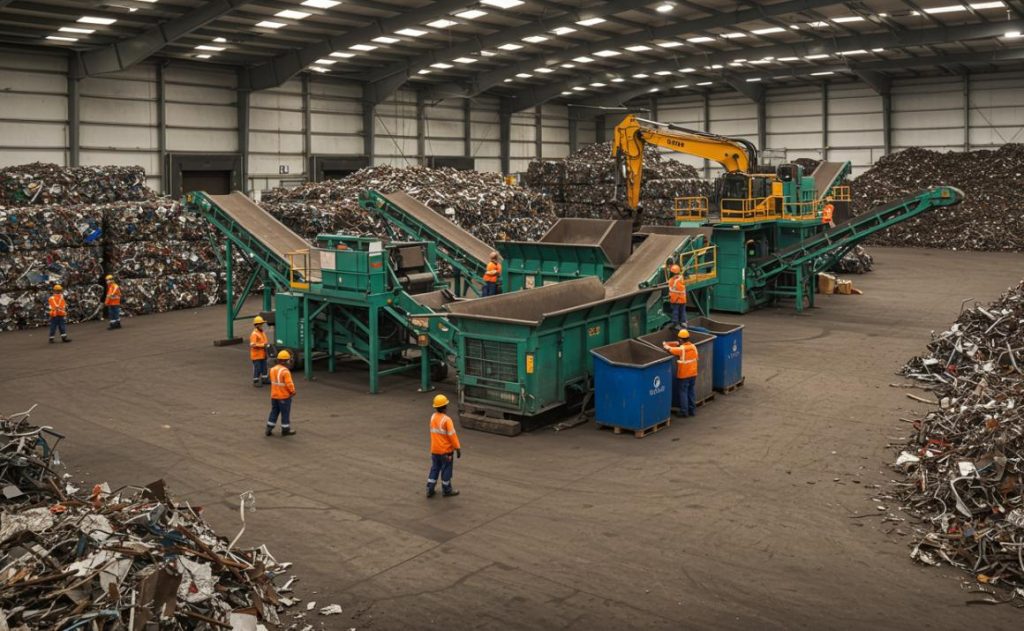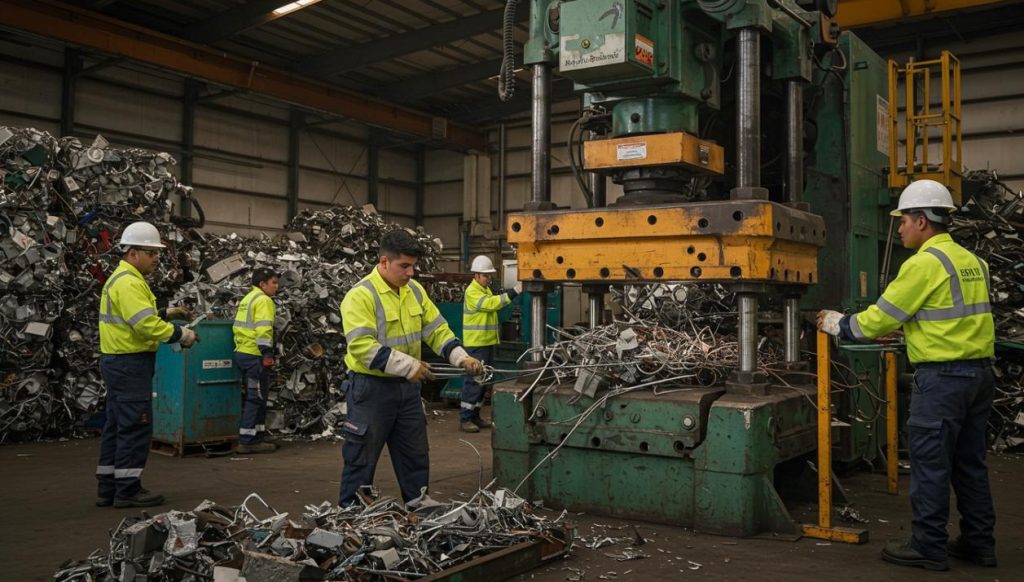Construction sites generate massive amounts of waste, with metal comprising a significant portion—over 140 million tons of metal waste are dumped annually into landfills in the U.S. alone. Yet, recycling metals like steel, aluminum, and copper can save up to 95% in energy consumption compared to new production. Let’s uncover how incorporating effective metal recovery strategies makes job sites greener and more economically efficient.
The Importance of Metal Recycling at Construction Sites
Construction sites, by their very nature, produce a significant amount of waste. Discarded materials can quickly become an environmental burden if not managed properly. However, metal recycling is emerging as an essential practice that reduces waste, conserves natural resources, and fosters sustainable construction. Implementing effective metal recycling programs on job sites doesn’t just support sustainability; it reduces expenses, boosts efficiency, and positions your business as an industry leader in eco-conscious practices.
Preserving Natural Resources for Future Generations
Natural resources are finite, and mining operations come at a heavy cost to the environment. Recycling scrap metal drastically reduces the need to extract virgin ore, protecting landscapes from potential destruction. For example, recycling aluminum scraps can diminish the demand for new aluminum ore by a staggering 95%, safeguarding resources that future generations will depend upon.
Beyond that, less mining results in fewer environmental hazards, preserving biodiversity and reducing contamination in soil and water systems. Every piece of metal recycled means fewer emissions released and fewer habitats disturbed, a clear win for environmental sustainability and a brighter planet for tomorrow.
Economic Advantages of Metal Waste Management
Incorporating metal waste solutions into construction jobs isn’t just beneficial for our environment; it also makes good financial sense. Industrial companies and job sites that practice efficient metal sorting and recovery can glean significant cost advantages. Turning scrap metal into revenue helps balance construction budgets, reducing overall material and disposal expenses.
Moreover, a robust recycling sector creates employment opportunities, from transportation and sorting to processing and manufacturing recycled products. This industry growth stimulates local economies by creating sustainable green jobs. Construction companies embracing scrap metal recycling are truly championing an economically efficient and sustainable future.

Practical Steps to Make Your Job Site Metal Recycling Friendly
Joining the metal recycling movement can significantly enhance your project’s sustainability. Ready to put this into action? These approaches ensure your job site remains eco-friendly and efficiently manages metal waste.
Sorting Scrap Metal Clearly and Strategically
The key to successful metal recycling on-site starts with sorting. Clearly labeled bins help workers easily separate ferrous metals like steel and cast iron from non-ferrous options, such as aluminum, brass, and copper. Placing these clearly marked recycling stations at easily accessible points will encourage workers to recycle consistently throughout the project duration.
Providing basic training for all staff on metal types and best sorting practices can reduce contamination rates, enhancing recycling efficiency. As metal cleanliness affects market value, proper sorting directly impacts your returns from recycling efforts, creating incentives for job site participation.
Partner with a Professional Recycling Provider
One of the smartest avenues towards reliable metal recovery is to establish a partnership with professional recycling companies. Experienced recyclers deliver essential expertise, sophisticated sorting equipment, and streamlined processes, simplifying the transition to a greener site management strategy.
Professional recycling companies like Dade Scrap Iron & Metal handle comprehensive services, from collecting and sorting to processing the materials, ensuring optimal returns and efficiency. This effective partnership significantly reduces workloads for project managers and creates smoother operations throughout the entire construction process.
Comparative Value of Commonly Recycled Metals
Understanding metal resale values provides insight into how much your site can economically benefit from recycling initiatives. The table below details average market prices to illustrate recycled metals’ relative financial benefits:
| Type of Metal | Average Market Price (per lb) | Common Construction Usage |
|---|---|---|
| Aluminum | $0.30–$0.60 | Structural framing, siding |
| Copper | $2.50–$4.00 | Electrical wiring, plumbing |
| Steel (Ferrous) | $0.05–$0.10 | Beams, rebar, structural elements |
| Brass | $1.50–$2.75 | Fixtures, valves, fittings |
The Growing Role of Technology and Innovation
Technology continues to revolutionize the metal recycling industry, yielding higher efficiency and accuracy. Innovations such as automated sorting systems using artificial intelligence (AI) and robotics enable faster separation processes, higher purity materials, and improved safety standards for employees.
Construction sites can take advantage of these advances, integrating cutting-edge sorting and lifting technologies from industry-leading providers to facilitate safer, quicker, and cleaner recycling. Embracing technological advancements represents a positive and strategic commitment towards sustainable operations.
Shaping Construction’s Sustainable Future
Construction industry practices are under increased scrutiny to reduce environmental impact. Public sentiment favors eco-friendly efforts more than ever before, prompting construction professionals to adapt their methods. Recycled metal usage and sustainable site practices position businesses as responsible environmental leaders, improving brand reputation and customer loyalty.
Moreover, regional regulations increasingly include recycling mandates, and proactive compliance reduces long-term risks associated with fines or reputational damage. By recognizing and embracing these expectations, metal recycling becomes an essential factor in maintaining competitive advantage for industry professionals.
Metal recycling within construction isn’t merely beneficial, it’s a strategic necessity. It strengthens resource conservation, significantly lowers environmental impact, and delivers substantial economic gains. Contractors investing in proper sorting, smart partnerships, and technological advancements demonstrate leadership in the movement toward sustainable strategies and future-ready job sites.
Ready to transform your job site into a model of sustainability and efficiency? Dade Scrap Iron & Metal offers premium landfill-free waste management, compaction, sorting, and baling services. Partner with they, embrace sustainability, and confidently build toward a promising eco-friendly future.


